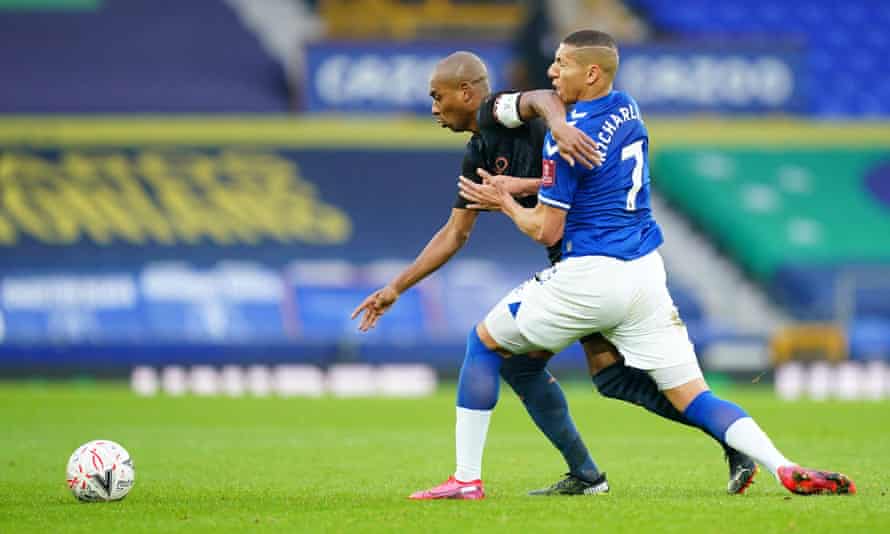Football isn’t always about glamour. In fact, it usually isn’t about glamour. On evenings like this, when one team have a very specific plan to contain and counter, perhaps the most important virtues are patience and consistency.
Manchester City may be contemplating the greatest season in their history but they, just as much as anybody else, need a player who can be relied upon not to give the ball away, to hold his position to block the break and to commit tactical fouls when necessary.
Fernandinho will be 36 in May and his contract expires in the summer. After a season spent largely filling in at centre-back, his starts have begun to be rationed now – just eight in the league so far this season.
But to watch him when he does play is to witness a masterclass. For a decade he has probably been the best midfielder of his type in the world, but it is a type that almost by definition often goes unnoticed.
He is not big, he is not quick, he doesn’t spray eye-catching 40-yard passes. He barely scores – just 24 goals in 338 games for City. He doesn’t slide through defence-splitting through balls – he has contributed only 19 assists in his City career. And he doesn’t make the sort of bone-crunching tackles that used to define the midfield hard man.
But he is always there. He became a vital presence in Pep Guardiola’s first three seasons at City because his positional play is so astute. A lot of his contribution defies statistical analysis because it relies so heavily on simply being in the right place, deterring a pass and so thwarting the opposition, or offering an angle that lubricates the flow of possession or opens up spaces. Although he’s only 5ft 10in there is an argument that he is technically the best header of a ball in the City team – each of the first three set-plays Everton had in vaguely dangerous areas were headed out by the Brazilian.

And then there are the fouls: 335 of them in his Premier League career, and that is just the ones that have been detected, which represents only a fraction of his output. Fernandinho is the Mozart of the pragmatic intervention, a once in a generation genius, a master of the clip, the nudge and the tug. So subtle is he that a foul by Fernandinho is 22.45% less likely to draw a booking than one by Lee Cattermole. When a yellow card did finally arrive against Everton – and in that regard Fernandinho appears to have inherited Mark van Bommel’s invisibility cloak – it was for an unapologetic block on Richarlison. Fernandinho is a rat-catcher in the guise of an orchestra conductor.
But, of course, he is so much more. He drifted constantly around the back of the attack, barely breaking into a run, always finding space, always offering an option to retain possession if the initial probe of the attack was stymied.
His position allowed Oleksandr Zinchenko to play high up the pitch with Kyle Walker sitting a little deeper, offering a shield against Richarlison’s pace on the counter. And, crucially, it allowed the Aymeric Laporte surge from deep that – finally – led to the breakthrough.
The sense of security he projects is profound. When Walker misplaced a pass in his own half after 23 minutes, for instance, presenting possession to Gylfi Sigurdsson, it was Fernandinho who appeared just in front of him, preventing a direct run into the box and forcing a pass out wide, slowing down the attack and giving City time to regroup. It was a moment that would barely register, a flicker of potential danger rapidly extinguished, but that is precisely Fernandinho’s value. It was his run that created the chance for Raheem Sterling that drew the first real save of the game.
The Fiver: sign up and get our daily football email
He even helped reattach Michael Oliver’s radio receiver when it became detached; of course, he is accomplished at resolving a simple but necessary practical issue. On an evening on which City were often frustrated and lacked a little penetration, the elegant efficiency of Fernandinho stood out.
The end, perhaps, is not too far away but Fernandinho can be relied upon, if not to rage against the dying of the light, then at least to jockey it into a less dangerous position. English football should appreciate a true master while it still can.
from Football | The Guardian https://ift.tt/3c6czGl
via IFTTT

No Comment